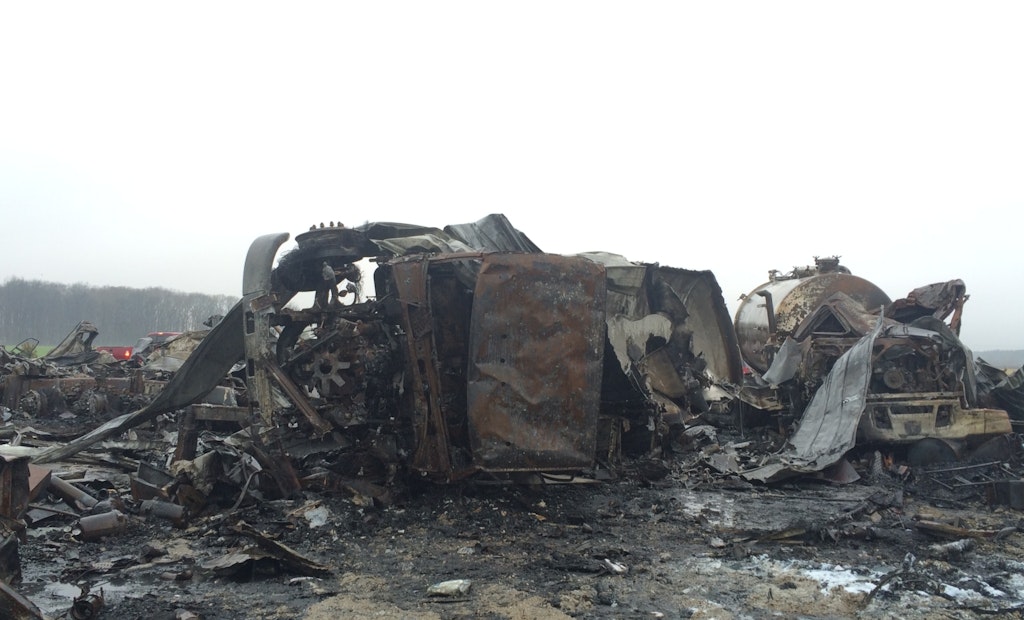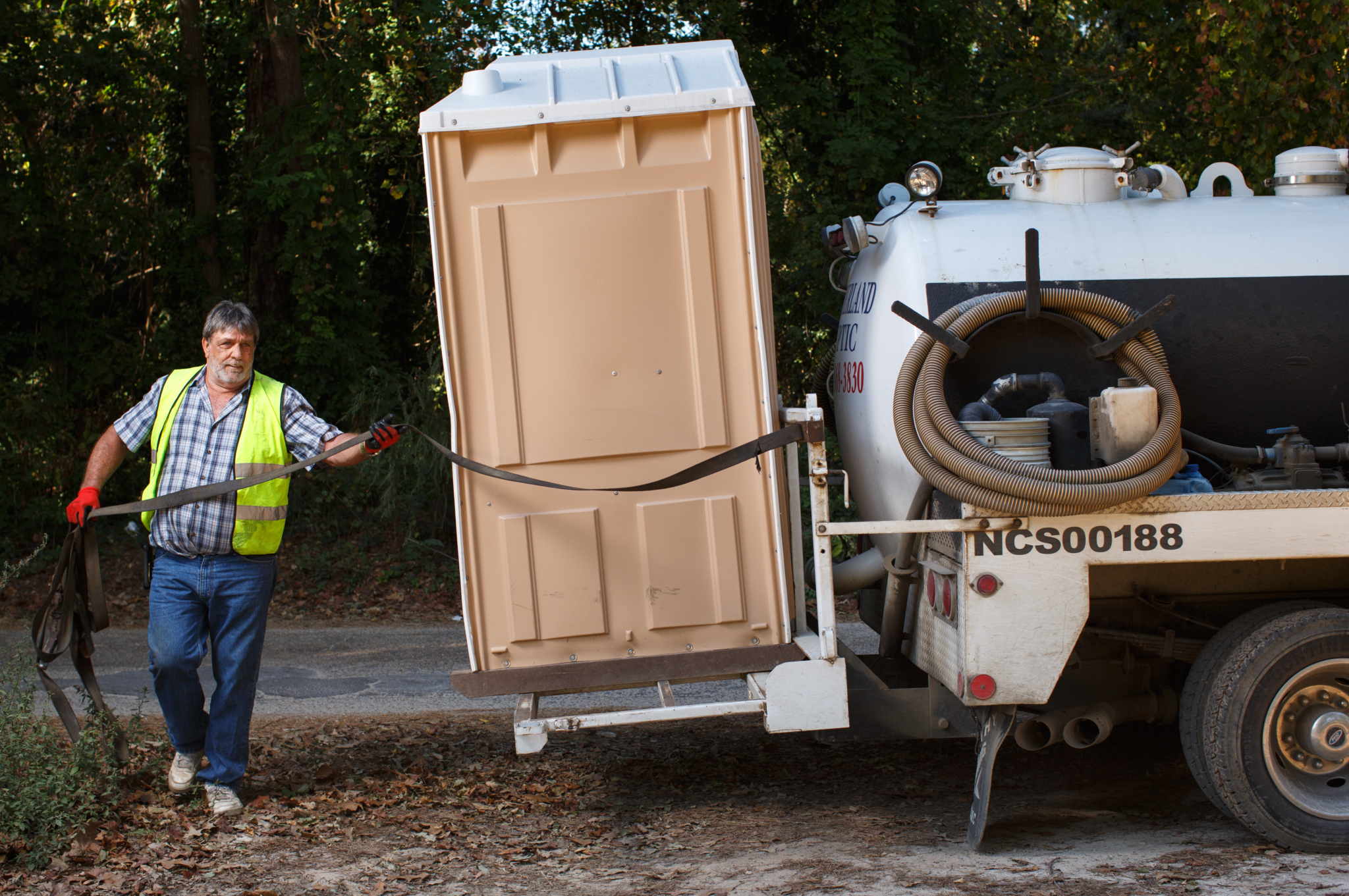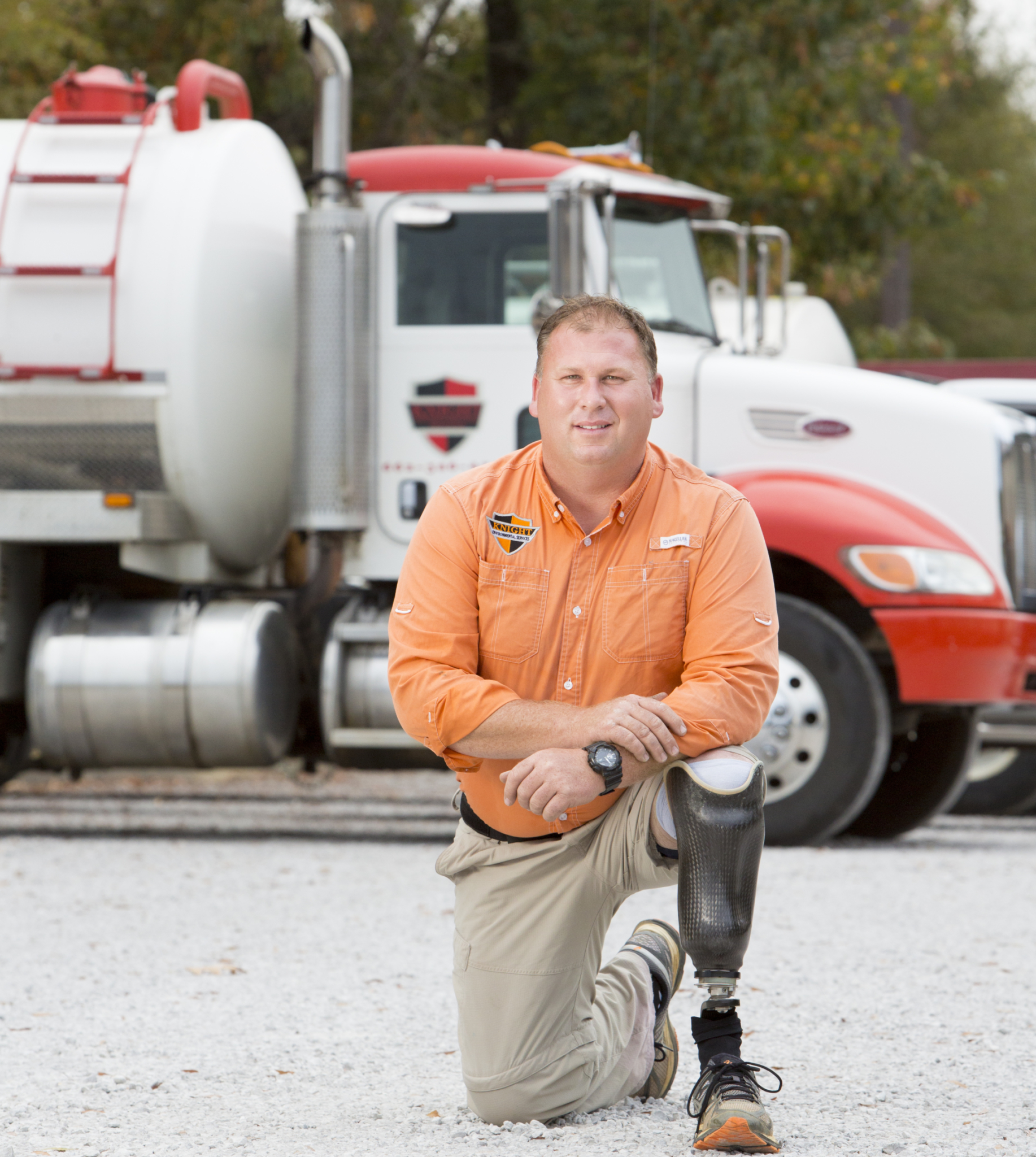
Photos from the fire damage to Clean Delaware in Milton, Delaware, that occurred in 2015. (Photo courtesy of Clean Delaware)
Interested in Business?
Get Business articles, news and videos right in your inbox! Sign up now.
Business + Get AlertsWe’ve all heard the popular proverb “when the going gets tough, the tough get going.” Cliché or not, there’s truth behind that phrase as it relates to the world of small business ownership.
Each month, Pumper magazine profiles a couple septic-pumping operations to share their stories, strategies and advice. During the course of our recent conversations with company owners, we’ve heard some great stories about overcoming adversity.
Take Gerry Desmond, for example. He’s the owner of Clean Delware in Milton, Delaware, and his entire business was ravaged by a fire in 2015. Nine fire companies battled the blaze, which consumed the entire shop, 11 vacuum trucks parked inside and 175 portable restrooms located around the propane tank. Also gone: pumps, timers, controls, fittings and other inventory. The company’s onsite wastewater treatment plant was also significantly damaged.
There might be a real temptation to call it quits after something so catastrophic, but the folks at Clean Delaware made a decision to survive that day. And they learned one of the funny ways facing adversity can strengthen a business.
“Ironically, the publicity resulting from the fire probably made up the business with new customers,” says Desmond. “While I wouldn’t wish a fire on anyone, it helped us to focus on defining and rebuilding the core of our business. Almost two years after the fire, we’re in a better position than before the fire. We’re a more focused and efficient company.”

Faced with 46,000 additions to the city sewer, Mike and Audrey Stancil pivoted to portable restroom service.
Staying proactive
Mike and Audrey Stancil are a good example of a owners who don’t lay down without a fight. They bought the struggling Cumberland Septic Services in Fayetteville, North Carolina, in 1990 and built it up to the point where Mike could quit his job with a solid waste company.
They had a pretty good thing going until 15 years later when a hiccup forced them to make a dramatic change in direction. It was referred to as the “big bang annexation.”
“The city took in everybody within 25 miles,” Mike Stancil says. By the time the annexation project was complete, Fayetteville had grown by 46,000 people, all of whom were hooked up to the city sewer system, essentially putting the Stancils out of the septic business.
Of course, sewer extensions didn’t go in overnight, so the Stancils had some time to regroup. Fortunately, a few years earlier they had gotten their feet wet in the portable sanitation business when a friend needed some help, so when they saw the handwriting on the wall they started expanding that line of work. And that expansion proved to be the key to the business’ survival.

Knight Environmental Services owner David Knight was in a wheelchair for six months before eventually amputating his leg.
Trials and tribulations
Perhaps no one we’ve talked to recently has had to overcome more on the road to success than David Knight of Knight Environmental Services in Caledonia, Mississippi.
In 2012, he was well on his way toward establishing a successful pumping company despite being only a year into the business venture. Although still largely a one-man operation, Knight had built a solid list of pumping clients and purchased an excavator to begin branching into septic repairs and installs.
Then everything came to an abrupt halt. While finishing up construction on a home he was building for family members, Knight fell into the foyer of the home and broke both of his feet.
“It was pretty devastating since I didn’t have any full-time drivers or anything,” Knight says. “I crushed my heel on my right side, and I already had a plate and several screws in my ankle on the left side, so when I hit the ground it destroyed my ankle joint. I was wheelchair-bound for four months.”
But the accident — only the first of several obstacles that occurred in the subsequent years — didn’t mark the end of Knight Environmental Services. Today, the diversified company is going strong with four full-time technicians and a varied workload, everything from pumping tanks to installing water mains for area utilities.
“Looking back at it, I don’t know how we made it through that rough period, but we did,” Knight says. “We just tried our best and did what we needed to do to live to fight another day.”
Knight’s strength was being willing to accept help when he needed it most, and he credits his family and other sources for his business’ survival after his one-man operation lost its one man.
First, Knight’s dad, brother and another friend all pitched in to keep up with the pumping workload.
“After-hours, and outside of other jobs they had, they would go pump tanks for me,” says Knight. “We just limped through it, no pun intended, for about eight months until I got back on my feet somewhat.”
But in August 2014, Knight had another setback. His left foot had never properly healed following his accident and was still giving him problems. After consulting with doctors he made the decision to have it amputated.
“I had a mid-calf amputation, but I still had the two guys working for me,” Knight says. “They were really green but worked hard, so we stumbled through the early part of 2015. Then, within a week, both of them left. One took another job and the other had a change of venue. I was a fresh amputee and back to square one again.”
From there, thankfully, the company has enjoyed a period of continual progress. A childhood friend joined Knight part time, and eventually full time, and by the end of 2015 Knight himself was moving beyond the physical struggles he’d had since the accident. In October of that year, he ran a 5k race on his prosthetic leg. A few more employees were hired, more equipment was purchased, and the jobs kept coming.
“We bounced back as solid as ever,” Knight says. “Now we’re just trying to keep up with demand.”
Ambition combined with an acceptance of circumstances helped Knight ride out each setback, he says. Even the way Knight handled his equipment after his injury is a great example of perseverance. He didn’t attempt to hang on to too much following his accident — he sold his excavator with the knowledge that it would be challenging enough keeping up on the payments for the vacuum truck.
Despite not being able to work at all for a period of time, and remaining limited physically for even longer, Knight made sure that one piece of equipment he decided to keep — the pumper truck — never stopped working and was out in the field making the company money.





